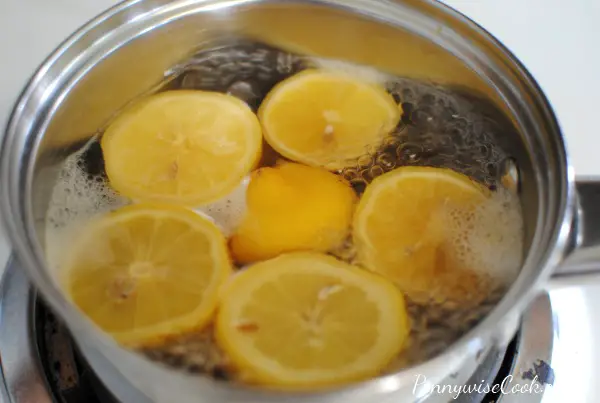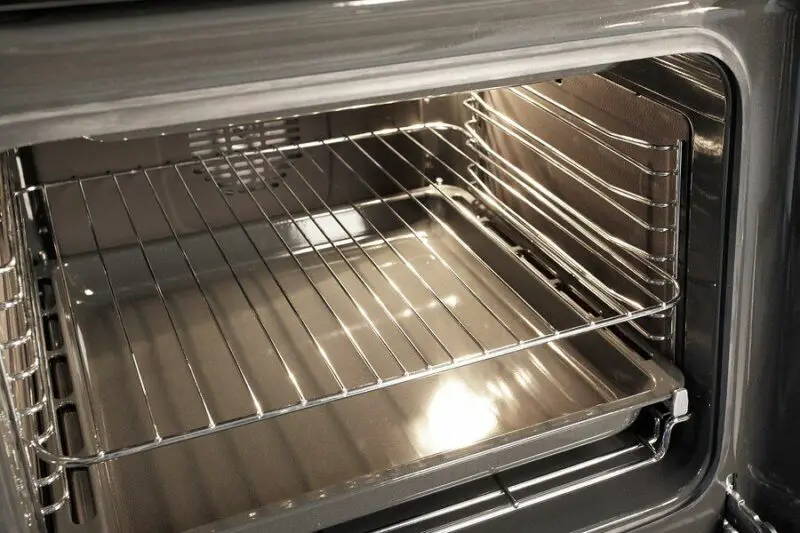Breathing in clean air is essential, especially for those suffering from asthma or allergies. It is no secret that indoor air pollution poses significant health risks. Unfortunately, most people spend the majority of their time indoors, which means they are likely to inhale harmful airborne toxins regularly. However, there are established methods to purify the air in our homes and offices successfully. One such method that has gained popularity is boiling lemons and using its vapors as a cleaning agent.
The Theory Behind Boiling Lemons for Air Purification
Lemons are believed to have natural disinfectant properties which could purify the air if boiled with water. The citric acid present in lemons is known to be an active antimicrobial agent against various pathogens [1]. This fact is the primary reason why many cleaning agents contain citric acid- it breaks down dirt and grease while killing any microorganisms on surfaces [2]. Additionally, lemon contains essential oils like limonene, linalool and citral; these may affect indoor air quality positively by suppressing bacterial growth and neutralizing bad odors [3].
Scientific Evidence on Lemon’s Ability to Purify Air
Although the idea of using lemon vapors as a natural disinfectant sounds appealing, scientific evidence supporting it remains scarce at best. Some studies indicate that specific constituents found in lemons help maintain indoor air quality.
In one study conducted by Korea University found that limonene (d-limonene) – one of the essential oils found in lemons effectively improved indoor environmental quality by removing traces of formaldehyde which is persistent pollutant inside most homes [4]. Another study evaluated different green plants’ effectiveness in controlling ambient volatile organic compounds (VOCs) concentration under laboratory conditions [5]. Among plants tested Aloe vera was effective as it reduced benzene concentrations up to 25% and formaldehyde levels up to 50% after two weeks.
However, most studies suggest that while lemon constituents have antimicrobial activities, these are only noticeable at relatively high concentrations [6].Taking into account the concentration required to act as a standard disinfectant, it is unlikely for boiling lemons with water to provide satisfactory protection against several potential airborne pathogens [7].
Advantages and Disadvantages to Using Lemon for Air Purification
Advantages
- Natural alternative to chemical cleaning solutions
- Lemons can be easily obtained from stores or produce markets.
- Cost-effective method of freshening up spaces.
Disadvantages
- May not be strong enough to get rid of all airborne toxins.
- Boiling lemons with water may not kill viral particles present in air droplets.
- Risk of citrus allergies or sensitivity
Alternatives to Boiling Lemons for Air Purification
While boiling lemons with water might seem like an ideal and cheap way of purifying the air at home, there are alternate methods that could prove more convenient and effective.
Installing an air purifier or using houseplants
Indoor plants offer an excellent natural way to filter out harmful agents present in the atmosphere. Some good choices include Aloe vera, Spider plant, English Ivy, etc. These houseplants absorb chemicals like formaldehyde and benzene. Besides this, installing an air purifier can filter out allergens like pollen, animal dander, and bacterial particles [8].
Maintaining proper ventilation systems/air conditioning units
Experts believe that optimal indoor air quality requires proper ventilation systems. Routine cleaning filters on heating and cooling units will reduce mold spores forming in uncleaned filters. Inadequate ventilation leads to a buildup of carbon dioxide which triggers symptoms like headaches and nausea [9].
Reducing sources of pollution indoors
Reducing indoor sources like smoking habits or putting restrictions on outdoor shoe wear can help further improve overall indoor air quality by reducing the amount of pollutants flowing inside.
The above methods offer a more efficient way of purifying air within residential and office spaces. Still, it is essential to note that these do not provide a complete cure as much as they elevate overall indoor air quality.
Conclusion
While boiling lemons might lead to a refreshing smell, it is unlikely to act as an effective disinfectant or air purifier. There is some scientific evidence suggesting that constituents found in lemons like limonene may have some indirect effect on the quality of indoor air. However, the concentration required for any noticeable antimicrobial action might be too high for everyday use [7]. Therefore, adopting alternative proven methods such as installing air purifiers, houseplants and proper ventilation & reducing pollutant sources should be considered while managing airborne toxins indoors. Future scientific research could clarify the effectiveness of boiling lemon’s vapours and add new insights into their benefit towards indoor air purification.
Q&A
Q: Can boiling lemons really purify the air in your home?
A: Boiling lemons have long been believed to have natural cleansing properties that can help remove unpleasant odors from the air. However, the scientific evidence supporting this claim is rather limited.
Q: How does boiling a lemon improve indoor air quality?
A: The citrus scent of boiled lemons can have a refreshing and uplifting effect on your mood and psychological state, which may in turn help improve the overall air quality inside your home. Additionally, some studies suggest that citrus oils like those found in lemons may have mild antimicrobial properties that could help reduce bacterial growth in the air.
Q: What is the best way to boil lemons for air purification?
A: To use boiled lemons for home air purification, simply cut a lemon into slices and place them into a pot of water. Bring the mixture to a boil and then let it simmer for an hour or so while releasing its sweet aroma around your home.
Q: Are there any downsides to using boiled lemons for air purification?
A: Although boiling lemons may seem like an all-natural and easy solution, keep in mind that excessive moisture in your home can actually lead to mold growth or aggravate respiratory issues if you are prone to allergies or asthma. Therefore, it’s best to only use boiled lemons as a secondary method of refreshing indoor air rather than relying solely on it as your primary source of purifying the air.





